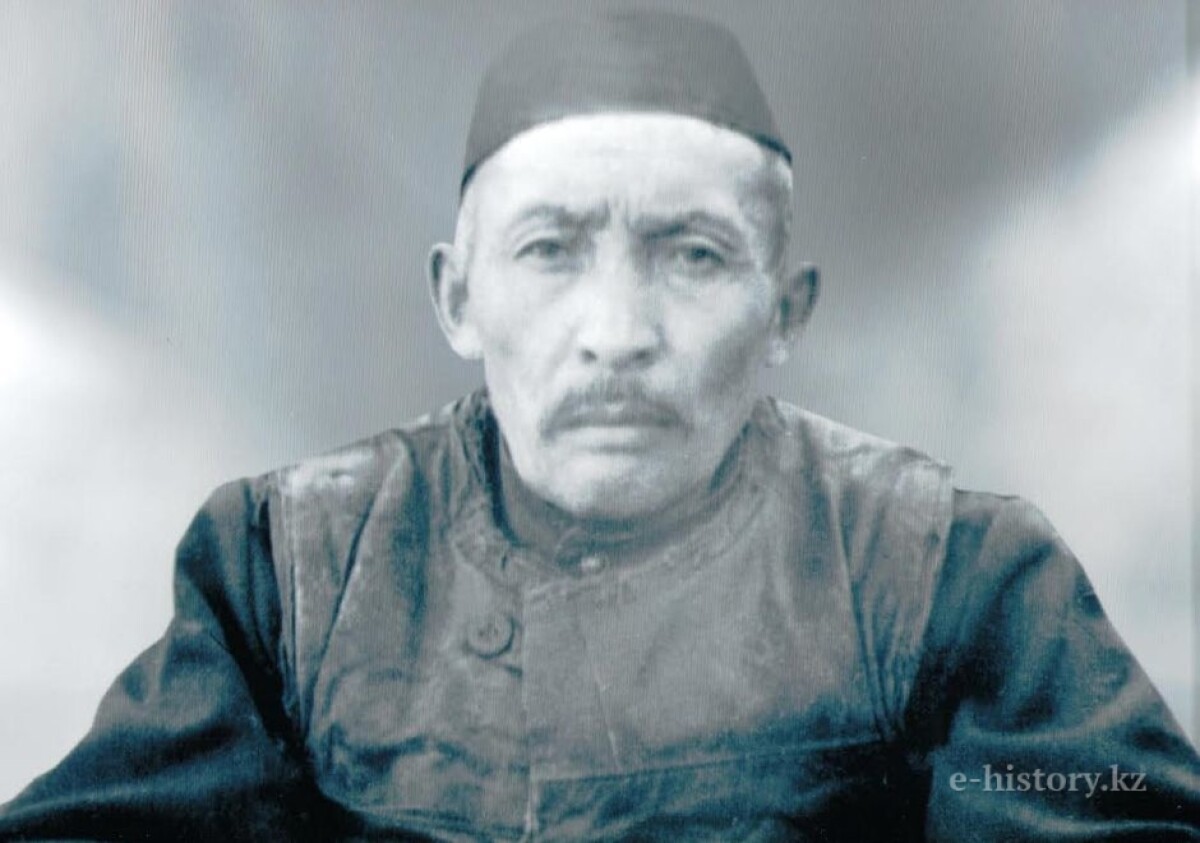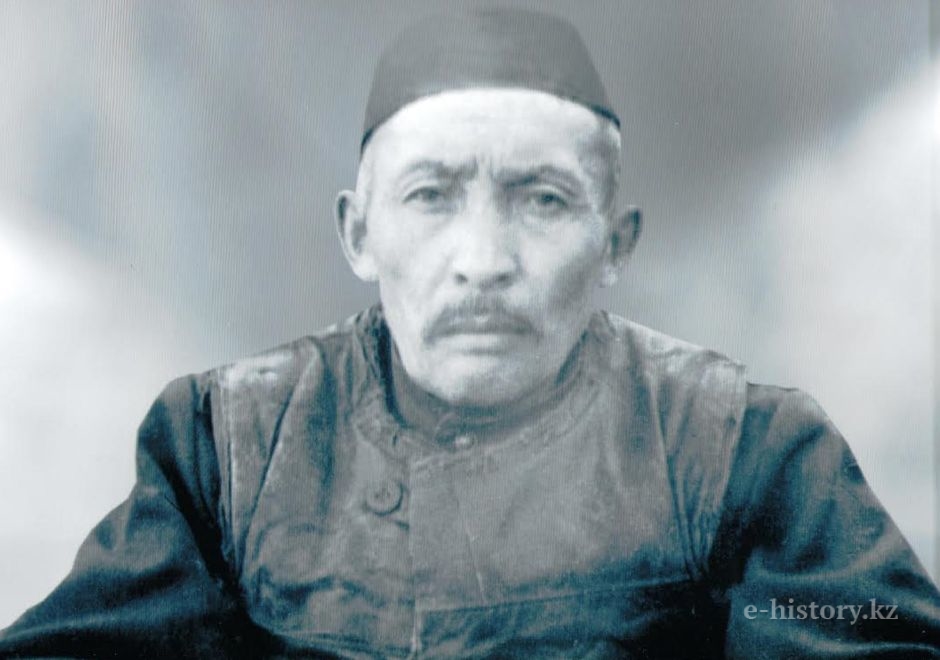
20 April 2015
All families in Kazakhstan were affected by the Great Patriotic War. Our fathers, grandfathers, mothers and grandmothers fought on its fronts. There is no matter whether they were workers on the home front or soldiers and officers — their contribution to the victory will never be forgotten. That is how our students usually start or finish their essays on the Great Victory. And I will do the same.
I have been interested in the Great Patriotic War since my childhood. And like every student I have to tell about my relatives who participated in the battles of the war every year closer to May 9. Unfortunately, I have never heard the stories of my grandfather from himself. My grandfather Zhandilda Tyulyubayev died almost thirty years before I was born. And the only person who could tell me about him was my father.
When I was a child my father told: "Your grandfather was a hero". I remembered only several details from his narratives. At the age of six I knew definitely that my grandfather was a machine gunner, captured by the Germans three times, and loved his Motherland. All the details I learnt when my father was me playing a computer game. In that game, I was running around Stalingrad killing the fascists. We started talking about weapons, tanks and soldiers. The discussion shifted to the story of my grandfather.

".... Your grandfather lived in an ordinary family, including him, two brothers and parents. He entered a madrasah when he was 7 years old. It was surprising in the Kazakh steppe. Most people wanted to study but didn’t have the opportunity. After that he studied at a church school for four year. When he went to Orenburg to continue his education he spoke the three languages fluently: Arabian, Russian and Kazakh. But he didn’t spend there too much time as from July to August 1941 all men joined the Red Army. After two weeks of training, he was sent to the front line. In 1942, Zhandilda Tyulyubayev started fighting on the Stalingrad front.
Your grandfather was a machine gunner. He protected his friends in attacks and covered their retreats. When your grandfather was wounded in his shoulder he wished to return back to the front as quickly as possible. He had many friends. And they were like brothers.
Your grandfather told that sometimes emotions governed his thinking and tears appeared in his eyes when his friends were buried. He often made notes on the names of killed friends but never countered how many people were eliminated by him.
For his heroism in an attack and loyalty to military duty, Zhandilda Tyulyubayev was awarded the Medal "For Bravery" and the Order of the Red Star.
In February 1943 his military unit was surrounded not far from Stalingrad. There were few survived soldiers able to continue fighting. They had only rifles, machine guns, two grenades and live ammunition to fire during twenty minutes. Your grandfather didn’t stop firing, changed his positions to cover flanks. Usually, his machine gun never overheated but on that day it became hot because of endless firing. Suddenly your grandfather lost consciousness either because of a rocket or grenade. Thus, he was captured by the Germans.
Zhandilda Tyulyubayev had no idea in which concentration camp he was and how far it was located from the front line. Days and weeks were passing he got acquainted with most prisoners. There were people from his native steppe. According to him, he was very pleased to talk with them about native places, peaceful times and those problems they faced in the past and how complicated they seemed before the war.
The life in the camp was terrible. But he was scared most when the staff and people at the highest ranks could kill a person without any reasons. Several times he was about to die. According to your grandfather, all prisoners were driven out and brought to their knees. The staff tied their hands and feet and placed bags over their heads. One of the senior jailers took a sapper spade and beat on heads of the prisoners. Those beaten people fell down on the ground with a groan. The most terrible was to hear steps coming closer to you and the voice of the next killed person. Thus, when you grandfather opened his eyes he could see several corpses around him.
The life in the camp seemed to be endless. But he worried most about his mother. Your grandfather knew that if she didn’t receive his letters for long, she would suspect something wrong. And if she got the notification of his death her sorrow will have no end. He spent two years in the capture. Until the prisoners organised a riot.
Of course, your grandfather knew about the preparation of the riot and even participated in it. It began when the captives learnt that the front line was approaching to their concentration camp. They lost many people but managed to take control of the camp. But Americans came instead of the Red Army. They brought all the prisoners to an island belonged to the USA. There were better life conditions. Almost nobody was killed because the captives were the citizens of the allied country. In 1945 after the signing of the peace treaty, the administration started sending the prisoners to their native countries. And the Americans proposed to become a citizen of the USA or to go home. Like most Soviet captives, Zhandilda Tyulyubayev returned home.
When he arrived at the Soviet Union the Soviet counter-intelligence organisation named SMERSH (Death to spies) checked him. Your grandfather was sentenced to ten years of work in coal mines in Buryatia with cancellation of all his ranks and awards. But he didn’t care as he wanted to join his family. And all the awards were confiscated by the Germans.
He spent six month in the mines and sent a letter to his family. His wife was very happy to receive it and soon after this she moved to Buryatia. They wrote to each other rarely and every letter was important. In 1951, he was released on parole. And In 1955 when I was a four-year-old boy we returned back and lived there in peace. In 1964, your grandfather died. I was only 14 years old. Probably, he would live longer if there was no war...". Having finished his story, my father looked at me... By that time, the computer had got into the sleep state. He looked at his watch, said goodbye to me and went to his work. Few days after he brought me a photo of a man with a skin face. That was the photo of my grandfather.
Thus, war changes faces and lives... It causes difficulties, many obstacles and challenges, miseries and tears. It is the story of one soldier, captive and patriot. It is the story with a happy end...
Zhandilda Medet,
grade 10 student of the Secondary School № 3,
Pavlodar Pavlodar region
